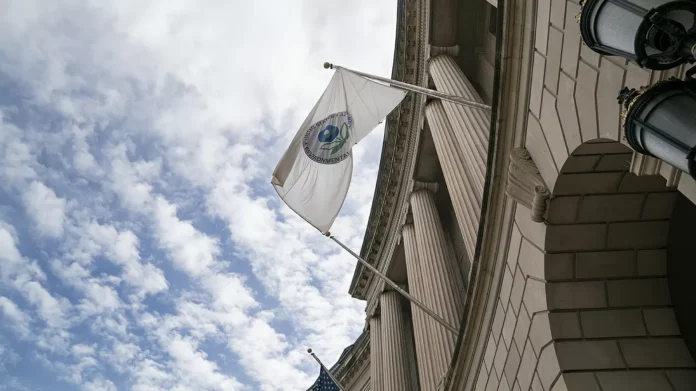The Environmental Protection Agency (EPA) has recently come under fire for its decision to lay off 280 staffers who were working on addressing pollution in overburdened and underserved communities. Another 175 staffers will also be reassigned in what has been deemed a major setback for the agency’s efforts in environmental justice. This move has raised concerns among environmental advocates and community leaders, who fear that the already marginalized communities will bear the brunt of this decision.
The EPA’s environmental justice program was established in 1992 with the aim of addressing the disproportionate amount of pollution exposure faced by minority and low-income communities. These communities have been historically burdened with the negative effects of pollution, such as higher rates of respiratory diseases and other health issues. The program has been instrumental in bringing attention to these issues and providing support and resources to affected communities.
However, the EPA has now announced that it will be laying off nearly a quarter of the program’s staff and reassigning many others. This decision has been met with criticism and outrage from environmentalists, who see it as a step backwards in the fight against environmental injustice. They argue that the EPA’s core mission is to protect human health and the environment, and this decision undermines that mission.
The EPA has defended its decision, stating that it is part of a larger effort to restructure the agency and streamline its operations. They claim that the staff reductions will not affect the agency’s ability to address environmental justice issues. In fact, they argue that the reorganization will make the program more efficient and effective in its approach.
However, many are skeptical of this explanation. The EPA’s track record in addressing environmental justice issues is already questionable, with many communities feeling that their concerns are often ignored or downplayed. The staff reductions only add to these concerns and raise doubts about the agency’s commitment to environmental justice.
Environmental advocates and community leaders are also concerned about the impact this decision will have on the affected communities. The EPA staffers who were working on environmental justice issues were often the only representatives of the agency that these communities had access to. They provided valuable support and resources, and their absence will leave a significant void.
Moreover, with the ongoing COVID-19 pandemic, these communities are already facing increased health risks and economic hardships. The EPA’s decision to lay off staff who were specifically working on addressing their environmental concerns only adds to their struggles.
In response to these concerns, members of Congress, along with environmental and civil rights groups, have called on the EPA to reverse its decision. They argue that the agency should prioritize protecting vulnerable communities, especially in times of crisis.
The EPA has an important role to play in promoting environmental justice and protecting the health of all communities. It is crucial for the agency to understand that environmental issues are not just about science and regulations, but also about social and economic justice. The decision to cut staff and resources from the environmental justice program sends the wrong message and undermines the agency’s credibility in this regard.
Instead, the EPA should be investing more in addressing environmental injustice and providing support to overburdened and underserved communities. This includes working closely with community leaders and organizations to understand their concerns and develop effective solutions. The agency should also prioritize diversity and inclusion in its workforce to better reflect the communities it serves.
In conclusion, the EPA’s decision to lay off staff and restructure its environmental justice program is a major setback in the fight against environmental injustice. It is important for the agency to realize the impact of this decision on already vulnerable communities and take steps to reverse it. The health and well-being of all communities, regardless of their race or income, should be a top priority for the EPA. Let us hope that the agency will rethink its decision and work towards promoting environmental justice for all.

